Are there insider researchers in Russian academia?
Chimiza Lamazhaa

Cover of Ch. Lamajaa’s monograph Ocherki sovremennoi tuvinskoi kul'tury [Essays on Contemporary Tuvan Culture] (St. Petersburg, 2021).
Even the way the question in the title is worded seems self-contradictory. Of course, one would say, there are insider researchers in Russia. A researcher’s position as an insider or outsider is always determined by their subjective position relative to the object of study. This issue is recognized and considered universal in the way we organize scholarly knowledge. It is especially relevant when it comes to scholars studying culture or society — either one to which they belong (and therefore relate to as an insider), or one to which they do not belong (and therefore are outsiders). However, one interesting feature of Russian academia is that this division is almost never acknowledged or discussed.
Russian academia seems to no longer have any insider researchers, as if those who work in regional research centers, who study culture and society in their own region, do not count. A search for the keyword “insider” on the Russian Science Citation Index, which now houses almost all significant Russian academic publications, returns mainly articles on insiderism in management and computer science, or insiders as sources of information for researchers. Similar keyword phrases, such as “internal anthropology,” “native anthropology” and “insider scholarship” prove equally elusive. The emic/etic perspective discussed in global academia (including issues of insider and outsider scholarship), in Russia rather relates to the general problem of understanding the objects of study, including ethnic groups.
And this is surprising, given that Russian academia is actually divided into metropolitan scholarship (operating in Moscow and St. Petersburg, accounting for only 30% of the country’s academic organizations) and regional scholarship (conductedin the Russian regions). Moreover, regional scholarship is primarily focused on studying the regional characteristics, social life and culture of local inhabitants, and is most often conducted by “regional” scholars, who are themselves, in fact, insiders.
Recently (2021–2022), I led a research collective working in one of the indigenous regions, the Republic of Tuva (Tyva)1, where the absolute majority (82%) of the population is indigenous Tuvans. All of the members of our team are Tuvan. Each of us spent many years independently studying certain aspects of the Tuvan language, Tuvan culture and Tuvan society — that is, subjects that we considered to be of vital cultural importance. A few years ago, we united our efforts into a joint project, the primary findings of which were published in 2022. Our first tasks seemed quite simple: among other things, we needed to interview our fellow countrymen, our kinfolk, and observe their daily lives, as well as our own. However, it became clear almost immediately that even in the initial stages of our fieldwork, we, as insiders, faced many nuances and problems. Among other things, I began to work on these issues, trying not only to reflect on the situation, but also to formulate a solution to these problems.
Russian academia seems to no longer have any insider researchers, as if those who work in regional research centers, who study culture and society in their own region, do not count. A search for the keyword “insider” on the Russian Science Citation Index, which now houses almost all significant Russian academic publications, returns mainly articles on insiderism in management and computer science, or insiders as sources of information for researchers. Similar keyword phrases, such as “internal anthropology,” “native anthropology” and “insider scholarship” prove equally elusive. The emic/etic perspective discussed in global academia (including issues of insider and outsider scholarship), in Russia rather relates to the general problem of understanding the objects of study, including ethnic groups.
And this is surprising, given that Russian academia is actually divided into metropolitan scholarship (operating in Moscow and St. Petersburg, accounting for only 30% of the country’s academic organizations) and regional scholarship (conductedin the Russian regions). Moreover, regional scholarship is primarily focused on studying the regional characteristics, social life and culture of local inhabitants, and is most often conducted by “regional” scholars, who are themselves, in fact, insiders.
Recently (2021–2022), I led a research collective working in one of the indigenous regions, the Republic of Tuva (Tyva)1, where the absolute majority (82%) of the population is indigenous Tuvans. All of the members of our team are Tuvan. Each of us spent many years independently studying certain aspects of the Tuvan language, Tuvan culture and Tuvan society — that is, subjects that we considered to be of vital cultural importance. A few years ago, we united our efforts into a joint project, the primary findings of which were published in 2022. Our first tasks seemed quite simple: among other things, we needed to interview our fellow countrymen, our kinfolk, and observe their daily lives, as well as our own. However, it became clear almost immediately that even in the initial stages of our fieldwork, we, as insiders, faced many nuances and problems. Among other things, I began to work on these issues, trying not only to reflect on the situation, but also to formulate a solution to these problems.

Cover of the book Dagylga: Tuvinskie obriady osviashcheniia v XXI veke [Dagylga: Tuvan rites of consecration in the 21st century] (Kyzyl, 2021).
Realizing that we exist within a complete vacuum on this subject matter within Russian academia, I turned to discussions in the global English-language scholarship. In this context, the problems of internal, native research have been discussed since at least the 1970s, and within the last 20–30 years, research had resumed again due to the increase in the number of scholars studying their own culture and reflecting on the problems of their situation (see: here, here, here and others). Kirin Narayan, Takami Kuwayama, Marta Kempny and many others came to the conclusion that the difference between outsider and insider researchers was not as great or important, as it may seem at first. Even while being an insider in a culture as a whole, a researcher can be an outsider in social groups of which they are not a member (see: here and here).
This is also the basis of the dichotomy, when the advantages of native anthropology can immediately turn into disadvantages. For example, you may be able to quickly establish contact with respondents who are members of your culture or who speak the same language, but you may not understand how those with different professions, different educations, or with different lifestyles communicate with each other; You may be immersed in the culture, but lose the objectivity of your view; You may be accepted by those around you as “one of them,” but you may also arouse suspicion as an “authority,” etc.
And in the case of Tuvan insiders, it is also obvious that we can be insiders in some cases, and outsiders in others. In many fields, much more has actually been accomplished by foreign researchers of Tuva —anthropologists who came to Tuva on expeditions in the early 2000s, studied the Tuvan language, lived in the regions, and communicated with livestock breeders and reindeer herders (here and here) —whereas Tuvan city dwellers were in no hurry to venture into the wilderness. Thus, the differences between external and internal researchers, which are not always clear-cut, are also present in internal Tuvan studies.
Evidently, we must understand the factors influencing the specific elements of how internal research is conducted, how results are interpreted, and then try to find solutions to correct potential biases.
This is also the basis of the dichotomy, when the advantages of native anthropology can immediately turn into disadvantages. For example, you may be able to quickly establish contact with respondents who are members of your culture or who speak the same language, but you may not understand how those with different professions, different educations, or with different lifestyles communicate with each other; You may be immersed in the culture, but lose the objectivity of your view; You may be accepted by those around you as “one of them,” but you may also arouse suspicion as an “authority,” etc.
And in the case of Tuvan insiders, it is also obvious that we can be insiders in some cases, and outsiders in others. In many fields, much more has actually been accomplished by foreign researchers of Tuva —anthropologists who came to Tuva on expeditions in the early 2000s, studied the Tuvan language, lived in the regions, and communicated with livestock breeders and reindeer herders (here and here) —whereas Tuvan city dwellers were in no hurry to venture into the wilderness. Thus, the differences between external and internal researchers, which are not always clear-cut, are also present in internal Tuvan studies.
Evidently, we must understand the factors influencing the specific elements of how internal research is conducted, how results are interpreted, and then try to find solutions to correct potential biases.

Cover of the monograph Tuvintsy: Rodnye liudi [Tuvans: Native people]
(St. Petersburg, 2022).
(St. Petersburg, 2022).
Divergent interests
For example, the general belief is that one must take into account the relationship between the sides of the ethnographic triad: 1) the researcher, 2) the respondent, a representative of the culture, and 3) the “reader” of the results (the academic environment), in which there is an imbalance of power due to the difference in interests of the heterogeneous academic environment. This imbalance is also present in Russian academia with its asymmetrical structure.
The fact that academic research has a customer (an academic organization or grantor, foundation) is important, since Russian academia mainly operates on budgetary funds, and the “customer” does not just read the results obtained, but also determines the thematic priorities of the research. Academic policy in Russia, as I have already written, is substantively determined by metropolitan scholarship. And this, in turn, is oriented to solving governmental problems. Recognition of Russia’s internal cultural diversity, as well as the relevance of studying it, is certainly a narrative in the works of Russian ethnologists. However, it is primarily associated with analyzing these cultures from a national security standpoint (so that this multiculturalism does not have the potential to become explosive).
In this way, metropolitan institutions set thematic and political boundaries. Another group of “customers” are the regional authorities. They are focused primarily on solving practical issues (which sometimes results in tasks such as studying cultural traditions in order to counter an increase in alcoholism among the population or reduce the crime rate). Needless to say, since 2022, regional scholars can no longer receive foreign grants, although due to the poor English proficiency of local researchers, there was previously little activity in this direction anyway. And following February 24, 2022, cooperation between Russian and foreign scholars has been greatly restricted, and in some places, even prohibited (although not officially).
The interests of individual members of the research community, who read the results of these studies and evaluate them, including recommending them for publication, depend on their affiliation with metropolitan academia, and therefore correlate with the interests of the customers’ politics. The same applies to the editorial offices of academic journals as instruments of academic policy. Regional scholars find mutual understanding only with similar scholars from other regions: they communicate more fruitfully at regional conferences and publish in each other’s regional publications. These trends also strengthen the asymmetric structure of Russian academia.
In-depth insider research for the field of Russian academia does not have the importance and relevance that we would like to see. It is not discussed, not studied, not updated. But that doesn’t mean it doesn’t exist. However, there is the feeling that insider researchers do not recognize themselves as special subjects of scholarship and culture, much less think about their own specific problems. Most notably, they don’t know their own culture and understand their respondents — fellow countrymen, tribesmen and relatives — as well as they think they do.
There is an opinion that respondents who are cultural representatives are actually excluded from the dialogic circle of ethnography when it comes to the work of outsiders: they are rarely consulted during the writing and publishing stage of a report (Criticism of this attitude towards the “natives” formed the basis for indigenous methodology, many practitioners of which, in their harshest statements, criticize the outsider approach on the whole). But insiders can also become foreigners within their own culture! In applying the knowledge and methods established by teachers who were outside of the researcher’s native culture, these researchers are not always able to understand their own kin, culture, or the logic dictating how it functions. Or even how they themselves should work with and relate to the subject.
For example, the general belief is that one must take into account the relationship between the sides of the ethnographic triad: 1) the researcher, 2) the respondent, a representative of the culture, and 3) the “reader” of the results (the academic environment), in which there is an imbalance of power due to the difference in interests of the heterogeneous academic environment. This imbalance is also present in Russian academia with its asymmetrical structure.
The fact that academic research has a customer (an academic organization or grantor, foundation) is important, since Russian academia mainly operates on budgetary funds, and the “customer” does not just read the results obtained, but also determines the thematic priorities of the research. Academic policy in Russia, as I have already written, is substantively determined by metropolitan scholarship. And this, in turn, is oriented to solving governmental problems. Recognition of Russia’s internal cultural diversity, as well as the relevance of studying it, is certainly a narrative in the works of Russian ethnologists. However, it is primarily associated with analyzing these cultures from a national security standpoint (so that this multiculturalism does not have the potential to become explosive).
In this way, metropolitan institutions set thematic and political boundaries. Another group of “customers” are the regional authorities. They are focused primarily on solving practical issues (which sometimes results in tasks such as studying cultural traditions in order to counter an increase in alcoholism among the population or reduce the crime rate). Needless to say, since 2022, regional scholars can no longer receive foreign grants, although due to the poor English proficiency of local researchers, there was previously little activity in this direction anyway. And following February 24, 2022, cooperation between Russian and foreign scholars has been greatly restricted, and in some places, even prohibited (although not officially).
The interests of individual members of the research community, who read the results of these studies and evaluate them, including recommending them for publication, depend on their affiliation with metropolitan academia, and therefore correlate with the interests of the customers’ politics. The same applies to the editorial offices of academic journals as instruments of academic policy. Regional scholars find mutual understanding only with similar scholars from other regions: they communicate more fruitfully at regional conferences and publish in each other’s regional publications. These trends also strengthen the asymmetric structure of Russian academia.
In-depth insider research for the field of Russian academia does not have the importance and relevance that we would like to see. It is not discussed, not studied, not updated. But that doesn’t mean it doesn’t exist. However, there is the feeling that insider researchers do not recognize themselves as special subjects of scholarship and culture, much less think about their own specific problems. Most notably, they don’t know their own culture and understand their respondents — fellow countrymen, tribesmen and relatives — as well as they think they do.
There is an opinion that respondents who are cultural representatives are actually excluded from the dialogic circle of ethnography when it comes to the work of outsiders: they are rarely consulted during the writing and publishing stage of a report (Criticism of this attitude towards the “natives” formed the basis for indigenous methodology, many practitioners of which, in their harshest statements, criticize the outsider approach on the whole). But insiders can also become foreigners within their own culture! In applying the knowledge and methods established by teachers who were outside of the researcher’s native culture, these researchers are not always able to understand their own kin, culture, or the logic dictating how it functions. Or even how they themselves should work with and relate to the subject.

Cover of the book Öövus. Vozvrashchenie tuvinskoi iurty [Öövus. Return of the Tuvan yurt] (Kyzyl, 2022).
If insiders do not introspect on this issue, if they declare one thing in their scholarly work but live something entirely different in their daily lives, then they end up imprisoning themselves in a professional stronghold. I have repeatedly observed researchers in different regions of Russia who, for example, criticize Westernization and write about the new generations losing the cultural traditions of their ethnic groups, while they themselves don’t speak their native language at home with their children (they grow up as Russian speakers due to their daily internet consumption and the fact that Russian is the language of instruction in schools), and buy their children toys that promote Hollywood popular culture and characters.
If these insiders were to ponder this contradiction, they may realize that they are also representatives of their culture and that this dialogical cultural community exists within them, when their professional identity clearly conflicts with their own ethnoculture (suggesting a research topic that is taboo within the culture, trying to “dissect” the mechanism behind a phenomenon from a logical standpoint when it’s a matter of faith, and so on). In our practice, we have encountered similar internal contradictions among our fellow Tuvan scholars (psychologists, folklorists, ethnologists, etc.), as well as within ourselves.
In general, the resolution of this contradiction favors our ethnocultural identity. At some point, we cease to be researchers; we become, for example, members of a family whose history we study. Our identities — professional and ethnocultural — begin to shift, to “flicker.” And most importantly, at certain points in our work, we are limited not by the ethics of academic research, but by the ethics of the culture itself. We cease to be researchers and observers, becoming people who pray, ask for blessings and are afraid of incurring trouble or curses.
The imbalance of interests between these various parties determines the contradictory nature and/or result of almost every study of ethnic culture in the conditions of Russian academia.
If these insiders were to ponder this contradiction, they may realize that they are also representatives of their culture and that this dialogical cultural community exists within them, when their professional identity clearly conflicts with their own ethnoculture (suggesting a research topic that is taboo within the culture, trying to “dissect” the mechanism behind a phenomenon from a logical standpoint when it’s a matter of faith, and so on). In our practice, we have encountered similar internal contradictions among our fellow Tuvan scholars (psychologists, folklorists, ethnologists, etc.), as well as within ourselves.
In general, the resolution of this contradiction favors our ethnocultural identity. At some point, we cease to be researchers; we become, for example, members of a family whose history we study. Our identities — professional and ethnocultural — begin to shift, to “flicker.” And most importantly, at certain points in our work, we are limited not by the ethics of academic research, but by the ethics of the culture itself. We cease to be researchers and observers, becoming people who pray, ask for blessings and are afraid of incurring trouble or curses.
The imbalance of interests between these various parties determines the contradictory nature and/or result of almost every study of ethnic culture in the conditions of Russian academia.

Cover of the monograph Tuva. Rodnaia zemlia [Tuva. Native Land] (St. Petersburg, 2023, in print).
Escaping the professional stronghold
Our path for escaping the professional stronghold and returning to our own culture contained several stages, which we derived from our fieldwork in Tuva from 2021-2022. We collected and recorded our impressions, spoke about them during general meetings, as well as in individual interviews with our principal investigator, and analyzed them.
Firstly, we came to the realization that collecting information from and communicating with one’s own relatives and social circle is more difficult than it seems. Errors in the approach, distortions in the behavior of the respondents (to appear better or somehow different than they actually are during the recording), and their own shortcomings associated with proficiency in the Tuvan language were all recorded.
Secondly, we realized that there were a number of research questions that insiders had never even considered because they could not begin to analyze cultural-linguistic concepts and individual terms in the Tuvan language for Russian-language academic works. Being a Russian speaker becomes a trap for native researchers.
Thirdly, we encounter family secrets that are accessible to us and may include us. But we ourselves understand that these are topics that we classify as taboo, although knowledge of a number of secrets helps us better understand the history of a people, family or clan.
Fourthly, when we combined the goals of academic research and the pressing problems of those close to us, we saw a shift in respondent attitude toward our work toward greater awareness of the importance of and respect for our efforts.
Fifthly, it became clear that the cultural situation is changing before our eyes, that we are seeing a certain cultural process. For example, the publication of books about modern rituals in which Tuvans participate, such as dagylga — a consecration rite for natural objects and places—led to performances of rituals by Tuvans who had never before participated.
Sixthly, we felt that we had previously been constricted by the framework of our individual specialities, as well as certain conditional restrictions, but now we had a sense of subjectivity in culture.
On the one hand, many of the thoughts and discoveries we had, as well as the actions we took in the name of our interdisciplinary research, were actually representative of mastering field methods in a different academic branch —anthropology, a field in which, despite demand within the country, the extent of professional training continues to decline. We can also talk about improving the skills of researchers who have been “mothballed” for many years after being overloaded with work at their universities, where research is considered an extracurricular activity. However, among our observations, there are also those that speak to the peculiarities of the relationship between insiders and their culture. They can also be formulated based on the general rules of anthropology.
Our path for escaping the professional stronghold and returning to our own culture contained several stages, which we derived from our fieldwork in Tuva from 2021-2022. We collected and recorded our impressions, spoke about them during general meetings, as well as in individual interviews with our principal investigator, and analyzed them.
Firstly, we came to the realization that collecting information from and communicating with one’s own relatives and social circle is more difficult than it seems. Errors in the approach, distortions in the behavior of the respondents (to appear better or somehow different than they actually are during the recording), and their own shortcomings associated with proficiency in the Tuvan language were all recorded.
Secondly, we realized that there were a number of research questions that insiders had never even considered because they could not begin to analyze cultural-linguistic concepts and individual terms in the Tuvan language for Russian-language academic works. Being a Russian speaker becomes a trap for native researchers.
Thirdly, we encounter family secrets that are accessible to us and may include us. But we ourselves understand that these are topics that we classify as taboo, although knowledge of a number of secrets helps us better understand the history of a people, family or clan.
Fourthly, when we combined the goals of academic research and the pressing problems of those close to us, we saw a shift in respondent attitude toward our work toward greater awareness of the importance of and respect for our efforts.
Fifthly, it became clear that the cultural situation is changing before our eyes, that we are seeing a certain cultural process. For example, the publication of books about modern rituals in which Tuvans participate, such as dagylga — a consecration rite for natural objects and places—led to performances of rituals by Tuvans who had never before participated.
Sixthly, we felt that we had previously been constricted by the framework of our individual specialities, as well as certain conditional restrictions, but now we had a sense of subjectivity in culture.
On the one hand, many of the thoughts and discoveries we had, as well as the actions we took in the name of our interdisciplinary research, were actually representative of mastering field methods in a different academic branch —anthropology, a field in which, despite demand within the country, the extent of professional training continues to decline. We can also talk about improving the skills of researchers who have been “mothballed” for many years after being overloaded with work at their universities, where research is considered an extracurricular activity. However, among our observations, there are also those that speak to the peculiarities of the relationship between insiders and their culture. They can also be formulated based on the general rules of anthropology.

Cover of the monograph Mal-magan. Tuvintsy — skot — miaso [Mal-Magan. Tuvans - cattle - meat] (Kyzyl, 2023)
When immersing themselves in a culture, a conscientious anthropologist makes their work a way of life, as our fellow outsiders say, such as British scholar Caroline Humphrey, my French colleague Marlene Laruelle, as well as representatives of metropolitan academia of Russia, such as Natalia Zhukovskaya. For external researchers, the question “How can I go from being an outsider to becoming an insider in the group I am studying?” is important. (In this case, I am not considering the general criticism of anthropology (including Russian ethnography) as an academic discipline that serves as a tool of (neo)colonialism). For insider researchers who do not have to “encounter” another culture, but who must also maintain a dialogic relationship with their own culture, the research strategy should rather answer the question: “How can I avoid becoming a ‘foreigner’ in my own culture and culture of study while remaining a scholar?”
In order to preserve and support all of this in our work—the work of regional Russian insider researchers—we consider it very useful to adhere to a structure and strategy like the combined research collective we have developed. In addition to the fact that we possess a certain amount of professional knowledge, we continue to practice advanced training, self-education and mastery of new methods, and we test and verify the results of our work within different circles of the professional community. And in order to maintain our balance of understanding of the “us and them” in our culture, we can combine our efforts and our individual “flickering” identities.
Each of us is an insider and an outsider in different conditions and different situations. Therefore, we can plan and carry out each research task by discussing it in our working circle—where our views intersect and the different angles from which we can consider each subject. In such a cross-sectional, circular examination of the issue, we have found it quite useful to employ the tactic of counter-intuitive questions that highlight the “blind spots” of each research field. These questions are posed by those of us who, in this instance, recognize ourselves as outsiders and see what insiders do not see, because they lose the perspective of an investigative gaze. Discussing the answers to such questions sometimes yields very interesting results.
These topics are also discussed in our new monograph, which we plan to publish at the end of 2023, and information about which will be posted on our publisher’s website.
Despite this, the work of regional scholars is still ongoing. This is precisely the kind of scholarship that is able to present the country’s multiculturalism not as a threat to national security, but as a source of internal wealth, a “soft power.” The only problem is making certain that regional scholarship is not swept up in the inertia of the current paradigm of provincial self-abasement, that it finds self-contained, internal paths for development.
To work effectively in studying their own culture, insider researchers should not only be experts in their academic fields, but also learn to reflect and listen to themselves, including as representatives of culture. One must understand the “interests” of a culture based on one’s own ideas about what is important for the culture, as well as for scholarship.
In order to preserve and support all of this in our work—the work of regional Russian insider researchers—we consider it very useful to adhere to a structure and strategy like the combined research collective we have developed. In addition to the fact that we possess a certain amount of professional knowledge, we continue to practice advanced training, self-education and mastery of new methods, and we test and verify the results of our work within different circles of the professional community. And in order to maintain our balance of understanding of the “us and them” in our culture, we can combine our efforts and our individual “flickering” identities.
Each of us is an insider and an outsider in different conditions and different situations. Therefore, we can plan and carry out each research task by discussing it in our working circle—where our views intersect and the different angles from which we can consider each subject. In such a cross-sectional, circular examination of the issue, we have found it quite useful to employ the tactic of counter-intuitive questions that highlight the “blind spots” of each research field. These questions are posed by those of us who, in this instance, recognize ourselves as outsiders and see what insiders do not see, because they lose the perspective of an investigative gaze. Discussing the answers to such questions sometimes yields very interesting results.
These topics are also discussed in our new monograph, which we plan to publish at the end of 2023, and information about which will be posted on our publisher’s website.
***
We can thus conclude that insider scholarship does exist within Russia, but development in this area is tied to organizational and traditional complexities of the system—the asymmetric, regionalized system of Russian academia, which is focused on the requirements of state academic policy. This leads to the fact that the ethnic cultures of regional communities remain of interest mainly to the regional academic centers and the regional scholars themselves. In essence, they are left to their own devices, including having almost no connection with foreign scholarship.Despite this, the work of regional scholars is still ongoing. This is precisely the kind of scholarship that is able to present the country’s multiculturalism not as a threat to national security, but as a source of internal wealth, a “soft power.” The only problem is making certain that regional scholarship is not swept up in the inertia of the current paradigm of provincial self-abasement, that it finds self-contained, internal paths for development.
To work effectively in studying their own culture, insider researchers should not only be experts in their academic fields, but also learn to reflect and listen to themselves, including as representatives of culture. One must understand the “interests” of a culture based on one’s own ideas about what is important for the culture, as well as for scholarship.
In the official and scientific literature there are disagreements in the spelling of the name of the territory, associated both with the presence of the Russian-language name “Tuva” and the endonym of the republic “Tyva,” as well as the version included in the Constitution of the republic “Republic of Tyva” (Тыва Республика, Tyva Respublika) which in the Constitution of the Russian Federation it is translated as “Republic of Tuva” (Республика Тува, Respublika Tuva). In English-language literature, “Republic of Tuva” is most often used, but the endonym “Republic of Tyva” is also encountered, which reflects a certain echo of the geopolitical disputes of the first half of the twentieth century regarding the status of the region (see this article).
- Chimiza LamazhaaPhD, a non-resident fellow at the Russia Program's Global Academy at The George Washington University
